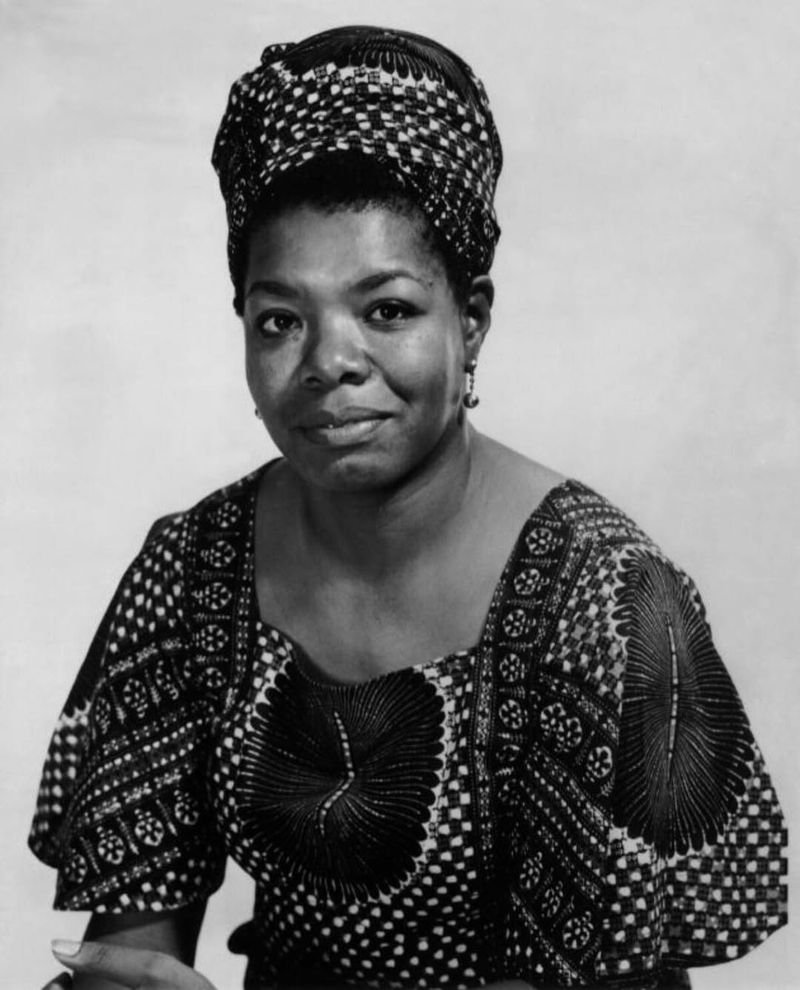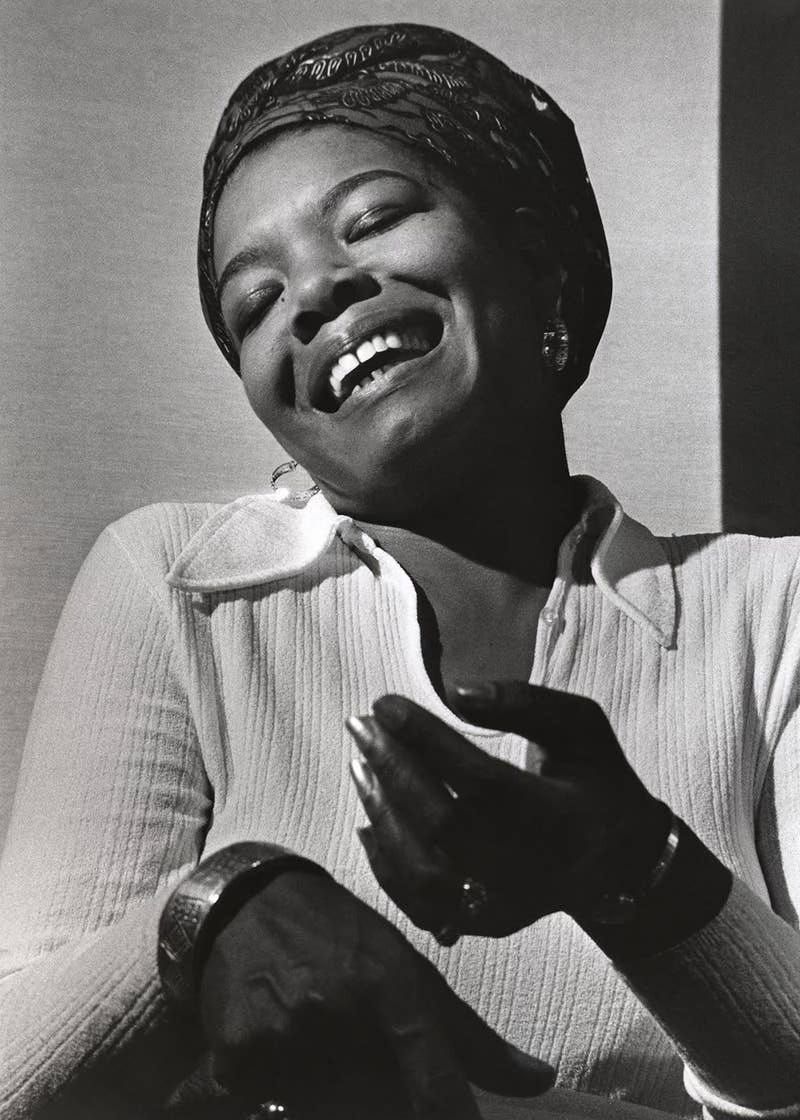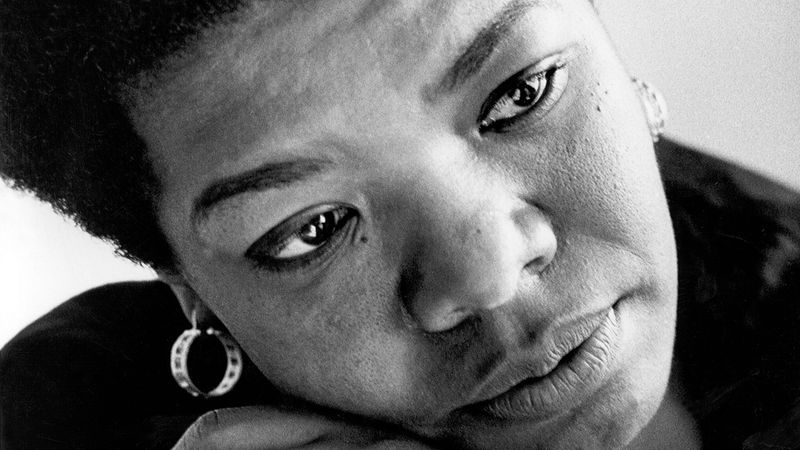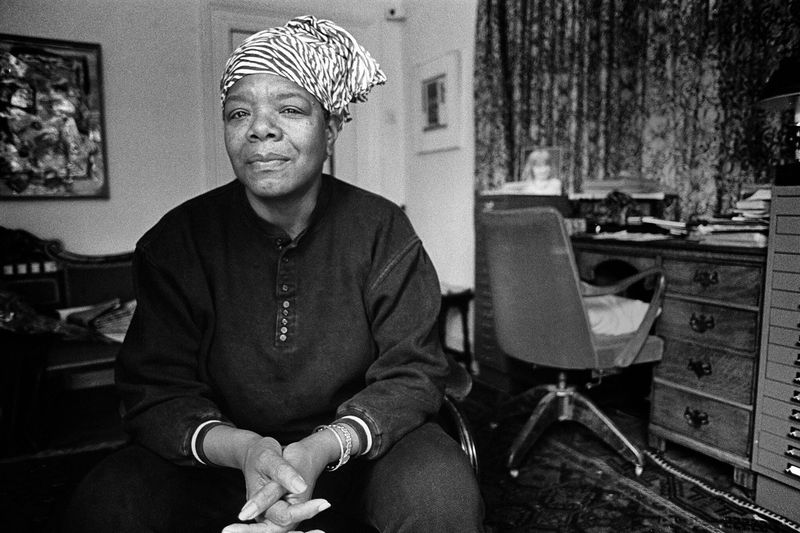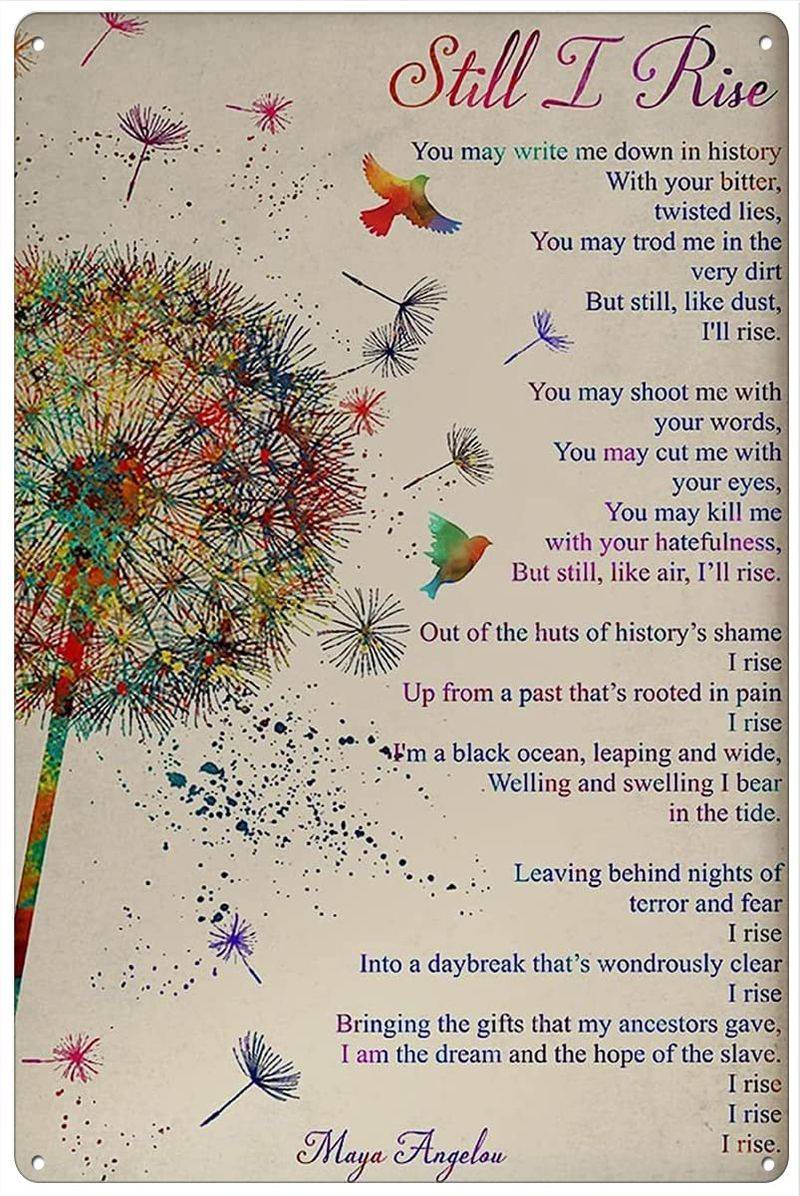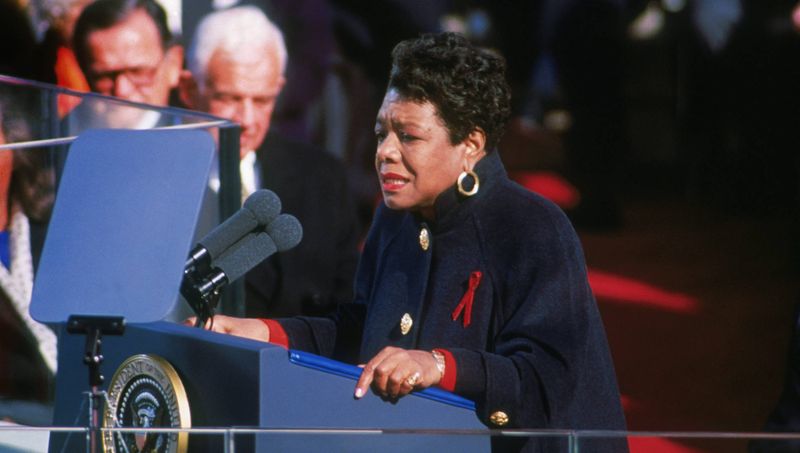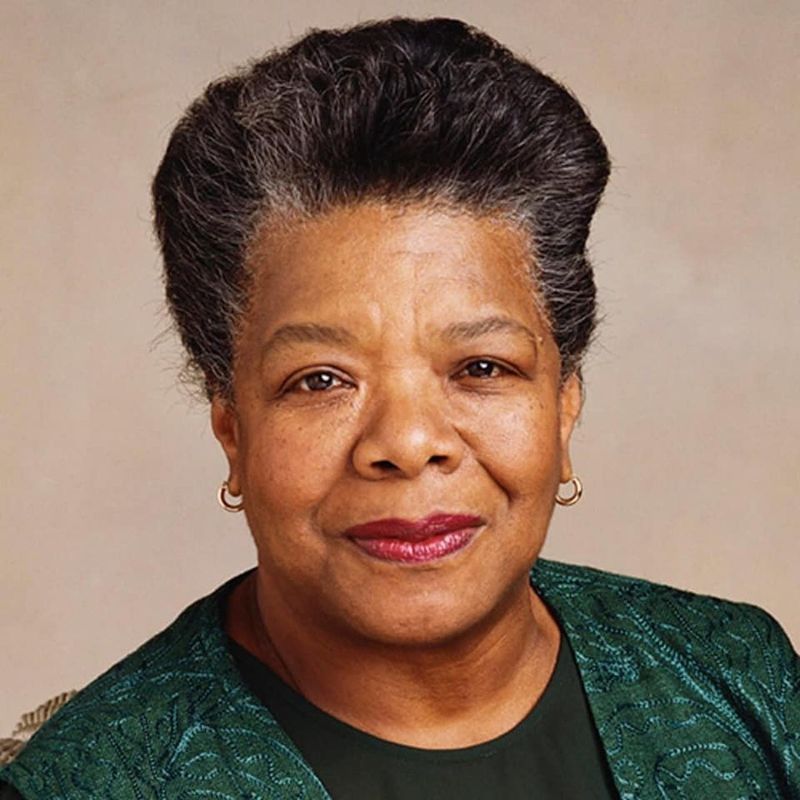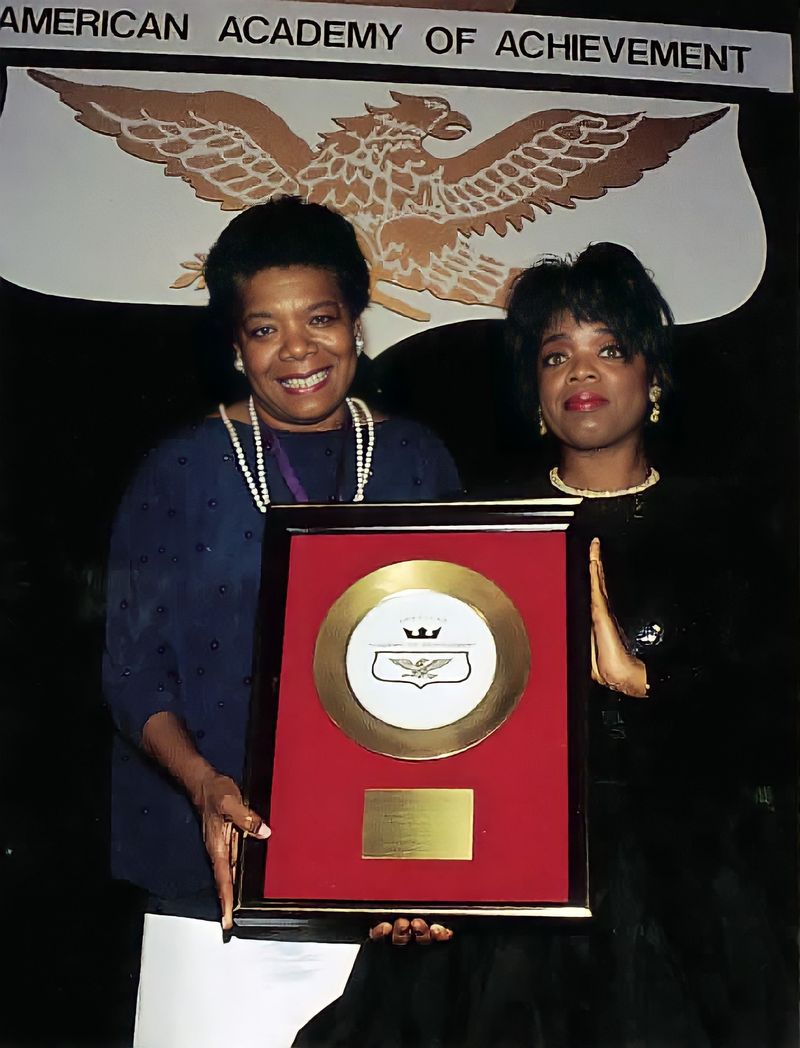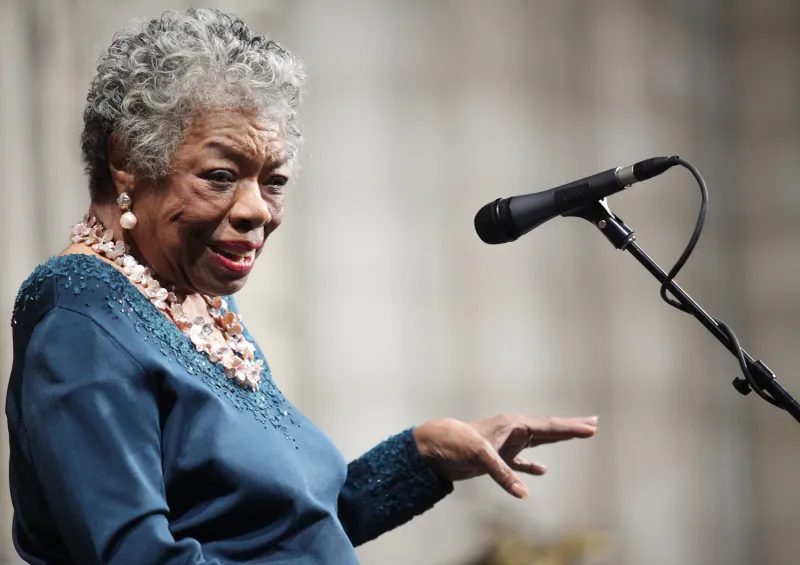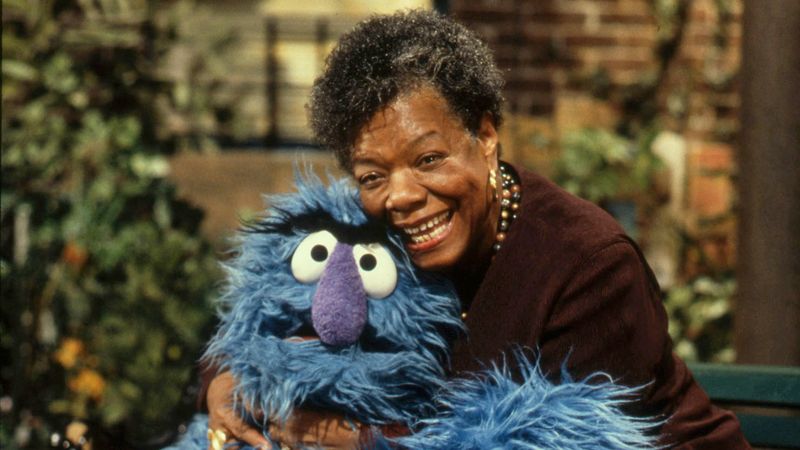Maya Angelou, a renowned poet, memoirist, and civil rights activist, has touched countless lives through her words and actions.
Beyond her well-known works and public persona, there are intriguing aspects of her life that many are unaware of.
Here, we explore twelve fascinating facts about Maya Angelou that you might not have learned in school, shedding light on her extraordinary journey and enduring legacy.
1. Born Marguerite Ann Johnson (1928)
Maya Angelou, originally named Marguerite Ann Johnson, was born on April 4, 1928, in St. Louis, Missouri. The environment of segregated America during her formative years heavily influenced her writing and world perspective. Her experiences with racism, displacement, and family dynamics provided a rich backdrop for her later works. Growing up in a time and place rife with racial tension sculpted her sense of justice and empathy. These early years planted the seeds of resilience and courage that would later manifest in her powerful literary voice, impacting millions around the world.
2. Early Hardships and Silence
Maya Angelou faced profound trauma as a child, including abuse that left her mute for several years. During this silence, she communicated through the arts—literature, music, and drawing. This period of muteness ended when she found her voice again, catalyzing her journey as a writer and speaker. Her silent years instilled a deep understanding of the power of words, both spoken and unspoken. These early hardships fueled her drive to express and advocate for those who had been silenced, shaping her unique storytelling style and empathetic worldview.
3. Breakthrough Memoir
Maya Angelou’s groundbreaking autobiography, “I Know Why the Caged Bird Sings” (1969), recounts her childhood and teenage years with vivid detail. It explores complex themes of identity, racism, and trauma while celebrating resilience and strength. The book became a beacon for those experiencing similar struggles, lauded for its honesty and lyrical prose. Reading it, audiences are introduced to Angelou’s powerful narrative style. Her memoir not only broke new ground in autobiographical writing but also elevated voices that had been marginalized, leaving an indelible mark on literature and society.
4. Prolific Writer and Poet
Throughout her career, Maya Angelou authored numerous autobiographies, poems, and essays, each infused with her signature lyrical style. Her writing, direct yet rhythmically rich, continues to inspire generations. She crafted her words to resonate with readers, addressing themes of empowerment, identity, and social justice. Her ability to weave personal narrative with broader societal issues set her work apart. Angelou’s contributions to literature are vast, each piece echoing her commitment to truth and humanity. Her poetic voice remains a guiding light for aspiring writers and ardent fans alike.
5. “Still I Rise”
“Still I Rise” is one of Maya Angelou’s most celebrated poems, revered for its themes of hope, resilience, and defiance. This anthem speaks to the struggles and triumphs of marginalized communities. Each stanza pulses with determination, capturing the spirit of rising above adversity. Angelou’s confident tone and evocative imagery inspire readers to embrace their inner strength. Her words resonate with anyone who has faced oppression, reminding them of their inherent power and dignity. This poem remains a timeless testament to the human spirit’s unyielding capacity to rise.
6. Civil Rights Activism
Maya Angelou played a significant role in the Civil Rights Movement, working alongside leaders like Martin Luther King Jr. and Malcolm X. Her activism was intertwined with her writing, each reinforcing the other. Through her involvement, she gained insights that enriched her literary work, providing authentic narratives of struggle and hope. Her voice became a rallying cry for justice and equality. Angelou’s commitment to civil rights shaped her legacy as an activist who not only witnessed history but actively contributed to the change she wished to see in the world.
7. Multi-Talented Artist
Not only a writer, Maya Angelou excelled as a dancer, actress, and singer. Her performances on stage and screen revealed her multifaceted talent and passion for the arts. This artistic versatility complemented her literary work, each enhancing the other. She understood the power of expression across different mediums, using it to connect with varied audiences. Her achievements in performing arts added depth to her cultural influence, establishing her as a pioneering figure who broke barriers and expanded the narrative of Black women in the arts.
8. Educator and Mentor
Maya Angelou’s impact as an educator and mentor was profound. Holding teaching positions at universities, she inspired countless students with her life’s experiences and insights. Her lectures went beyond academia, touching on literature, human rights, and the transformative power of art. She was a sought-after speaker whose wisdom resonated deeply with audiences. Through her mentorship, Angelou empowered future generations to pursue their dreams and advocate for justice and equality. Her legacy as an educator continues to influence those who strive to make a difference.
9. Honors and Awards
Maya Angelou’s contributions to literature and society were recognized through numerous honors, including the Presidential Medal of Freedom and the National Medal of Arts. Her accolades celebrated not only her artistic achievements but also her dedication to social justice and human rights. Each award acknowledged her role in shaping cultural and intellectual landscapes. These honors reflect her enduring impact, validating the significance of her work and perseverance. Angelou’s decorated career serves as an inspiration, encouraging others to pursue excellence and advocate for meaningful change.
10. Global Influence
Maya Angelou’s message transcended borders, resonating with audiences worldwide. Her extensive travels and international engagements showcased her global influence. At events across continents, she spoke on dignity, respect, and the human spirit, inspiring people from different cultures. Her universal themes fostered understanding and connection. Angelou’s global outreach not only amplified her voice but also encouraged cross-cultural dialogue. Her legacy continues to inspire globally, reminding us of the shared human experience and the power of empathy and respect.
11. Legacy as a “Voice for the Voiceless”
Throughout her life, Maya Angelou championed the causes of those silenced by injustice. Her writings and public appearances urged society to embrace empathy and equality. As a “voice for the voiceless,” she advocated for transformative change through the power of language. Her work highlighted the struggles of marginalized communities, offering hope and empowerment. Angelou’s legacy as a humanitarian continues to inspire action and empathy, fostering a world that values every voice. Her life’s work remains a testament to the impact of advocacy and resilience.
12. Influence on Popular Culture
Maya Angelou’s words have permeated popular culture, quoted in films, music, and speeches. Her distinctive voice and honest reflections have left a lasting mark on modern America. Her influence extends beyond literature, resonating with artists and leaders who draw inspiration from her work. Angelou’s quotes continue to inspire and challenge societal norms. The cultural impact of her legacy endures, ensuring her message of empowerment and justice is passed to future generations. Her presence in popular culture underscores her role as a transformative figure in American history.

